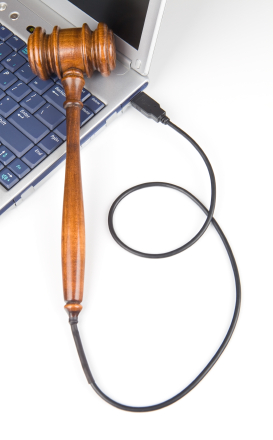Plaintiffs brought a motion for a new trial because of an email sent by a juror to the Plaintiffs’ attorney four days after a defense verdict. Wilgus v. F/V Sirius, Inc., 2009 U.S. Dist. LEXIS 100094 (D. Me. Oct. 27, 2009). The email stated:
[D]id you know your plaintiff[s] advocated the use of mushrooms and weed smoking, and binge drinking all over the internet? . . . It[‘s] really sad what happened but with all the work going into this don[‘t] you think you should have address[ed] this issue and known such things so they could clean up their acts before court? I’m just trying to help.[] [I]f you want more info and insight [I] will help you.
Wilgus, at *2.
 How did the juror learn this information?
How did the juror learn this information?
Facebook. Wilgus, at *10.
How on Facebook you ask?
The juror sent the Plaintiffs friend requests after the trial. Wilgus, at *10.
And as you can guess, the Plaintiffs accepted the friend request.
After the Plaintiffs’ attorneys returned from low Earth orbit, the Judge held an investigation, asking questions of the juror at issue and the jury foreperson. The juror claimed he did not “friend” the Plaintiffs until after the trial. The juror also claimed he discovered photos on the Plaintiffs’ Facebook profiles that motivated him to email the Plaintiffs’ attorney. Wilgus, at *10.
The juror claimed that the information on Facebook was never discussed during jury deliberations. Wilgus, at *10. Additionally, the juror claimed the Facebook material would have not influenced him during deliberation, because he did not know about the Facebook photos at that point in time.
The Judge found no basis for the juror being untruthful as to when the juror found the Facebook material, which was after the verdict. Wilgus, at *12-13. As such, the Court denied the Plaintiffs’ motion for a new trial.
Bow Tie Thoughts
This case is a giant warning sign to any trial lawyer and judge on jurors and Facebook. The idea of a juror “friending” a party at any point in time is troubling. Moreover, trial attorneys really need to be aware of party admissions their clients might be making in status messages or damning their own case with photos. If a juror can find it, watch out for the opposing party.

May be a logical step in the process of representing someone, looking into their status on social media websites…
As well as reminding anyone involved they shouldn’t accept random friend requests!